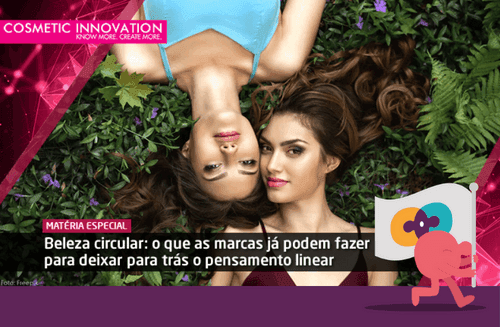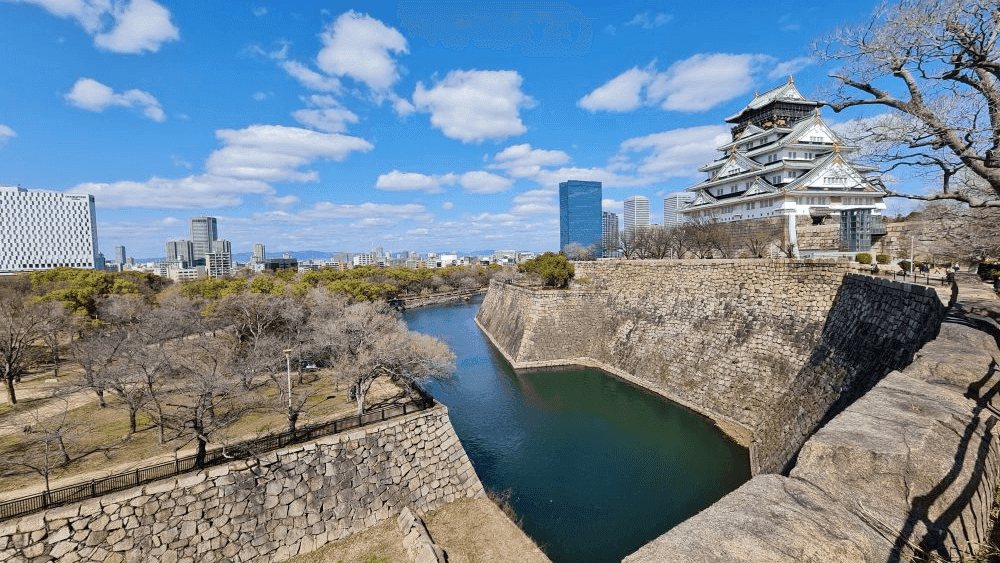
22/06/2022
Cosmetic Innovation: challenges of circular beauty
Check this out! The Cosmetic Innovation portal, a specialist in the cosmetics market, spoke with Movimento Circular and representatives of major brands that are concerned with joining the circular economy, such as Natura, L’Occitane and B.O.B (Bars Over Bottles), about what brands can do to overcome linear thinking. Check out the article below:
Circular beauty: what brands can now do to leave linear thinking behind
Monday, June 20th 2022
By Estela Mendonça
In the circular economy, economic development is linked to the best use of natural resources under a 360º view, from the creation of a product, its production, commercialization, consumption and post-consumption disposal until its return to the supply chain, completing an ideal circle. complete.
Although it seems challenging, through the circular economy, it is possible to improve several processes, including generating new business opportunities. “The change in our polluting and excluding economic model to one based on circularity has been increasingly considered and put into practice by different social actors such as companies, government and citizens”, observes Edson Grandisoli , Master in Ecology, Doctor in Education and Sustainability by USP, post-doctoral fellow by the Global Cities Program (IEA-USP) and pedagogical coordinator of Circular Movement, a collaborative ecosystem created to encourage the transition to the circular economy.
Grandisoli explains that, currently, the best known economic model is the linear economy, with a chain that is based on the extraction of natural resources, production and disposal of products, which makes it increasingly unsustainable. “The circular economy proposes a new look at our way of producing, consuming and discarding, in order to optimize the planet's resources and generate less and less waste. One of the goals is to keep the materials in circulation for a longer time, through reuse, until nothing becomes garbage. It is a true collaborative circle, which feeds itself and helps to regenerate the planet and our relationships”.
In the expert's assessment, the cosmetics industry can become a protagonist in the creation of more circular business models, with the importance of controlled and sustainable exploitation of organisms, such as algae, for example, for providing substances necessary for the manufacture of different products. “Preserving natural capital is an inseparable part of a more circular economy”.
In the production chain, Grandisoli cites as an example that practices aimed at reducing waste and reusing water can also be implemented. The packaging design and its composition are also important points. “They must be designed in such a way as to allow and facilitate their reuse or recycling in post-consumption. Finally, the consumer always plays a key role in the circular economy. Choosing more socio-environmentally friendly products, manufactured by companies with solid and proven ESG practices, are choices that favor the entire production, consumption and disposal chain”.
Pioneer in circularity
“Concern with circularity is a theme that has been present at Natura for decades ”, says Roseli Mello , global leader in Research and Development, noting that the company was the first cosmetics brand in Brazil to adopt refills in its products, back in 1983. . Roseli highlights that initiatives for recycling chains, such as the Natura Elos Program, represent shared responsibility with packaging suppliers, cooperatives, recyclers and manufacturers, and that, since 2017, the company has collaborated to ensure traceability, approval and reverse logistics at all its suppliers of recycled materials.
“To decide on a supplier of recycled material, we understand the entire origin of waste collection, under what conditions they were made and how they were transformed into recycled raw material. The program does not only consist of transparency, but rather the transfer of technical and instrumental knowledge so that all links in the chain become professional”, says Roseli. The company also created the reverse logistics program at Natura stores throughout Brazil and, since the beginning in August 2020, 20 tons of packaging have already been collected and properly disposed of through the initiative.
The executive also cites as an example of circularity the packaging of Kaiak, in which the so-called "shoulders" of the fragrances, the largest plastic part of the packaging, are made of recycled plastic taken from the Brazilian coast. In addition, the bottles are also produced with up to 30% recycled glass and use 100% organic alcohol, as are all Natura fragrances.

“In addition, we have Biome, our first beauty and personal care line in bars, which has zero plastic packaging, made from recycled and post-consumer recyclable paper”, says Roseli, explaining that, internally, these products are protected by film. biodegradable cellulosic, obtained from renewable and compostable sources. The line also offers an exclusive support for bar items, produced using an unprecedented technology that captures methane gas and transforms it into bioresin, turning a potentially harmful gas into a compostable and biodegradable material.
Return to the industry
Beatriz Branco, branding and sustainability manager at Weleda Brasil, reinforces the urgent need for circularity: “The linear form of product development no longer fits on our planet. We already work with natural and clean formulas that do not pollute the environment, but we also need to ensure that the packaging has some use or return to the industry, and does not end up in a landfill”. Prioritizing the use of recycled materials, seeking compostable and non-fossil-based options are among the company's development priorities. “Today, 45% of the volume of packaging we use is already of recycled origin and we want to reach 65% in 2022”.
An example of a recent launch by Weleda is Skin Food body butter, a vegan multifunctional moisturizer with 100% natural ingredients extracted in a sustainable way. The product is in line with the circular economy, according to Beatriz, also due to its glass packaging, made with 85% recycled material. After use, the consumer can choose the correct disposal for recycling glass or reuse it creating new functions, such as a pot for candles, jewelry boxes and ecopads.
Refill station
With a range of hair, skin and oral care products, Ahoaloe, founded in 2016, uses organic aloe vera from its plantation, on the banks of the Jaguari Dam, in Serra do Lopo, Minas Gerais, as a base. . Compounds from Amazonian biodiversity were also incorporated into the formulations. Larissa Pessoa , founding partner of the brand, says that the entire process of creating and developing its products is carried out with sustainable technologies.
According to Larissa, shampoo bottles, conditioners and 120 ml bottles are made from recycled and biodegradable PET, which is non-residual or intoxicating to the environment during decomposition. “This material that makes up the packaging is supplemented by a pro-degrading enzyme derived from palm coconut oil, which remains in the plastic until it is reactivated by water molecules in the soil,” she explains.
Another initiative of the brand is the bulk refill station, where customers can use their empty, sanitized and dry Ahoaloe product packaging for the Neutra line filling. With the refill station, the brand intends to reduce by 20% the use of packaging and waste generation of everything sold in the store, in São Paulo.
“What underlies our actions is a native saying that our existence must be in such a way as to allow the existence of the next seven generations. End-to-end sustainability is the main pillar of Ahoaloe, from the choice of ingredients, packaging and distribution chain”, completes Larissa.
Plastic free deodorants

BOB (Bars Over Bottles) has launched four deodorant options with clean, vegan, aluminum-free and 100% plastic-free formulas. The formulas are natural, hypoallergenic, dermatologically tested and combine protection and care technology for each skin type. One of the brand's main goals is to offer a complete line of personal care products to transform the bathroom into a plastic-free place. “BOB's portfolio, which began with the introduction of shampoos and conditioners in bars in Brazil, already has several complementary products, such as a facial cleanser bar, hair masks, kids line and intimate soap. Now, deodorants arrive to compose this zero plastic bathroom concept”, highlights the co-founder of the brand Andreia Quercia.
Check the full article on Cosmetic Innovation Portal.

